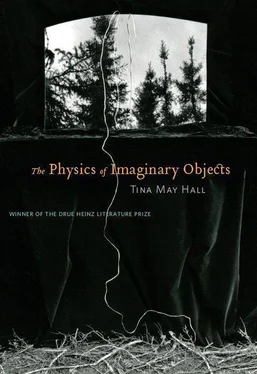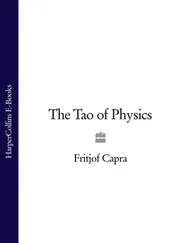Tina Hal - The Physics of Imaginary Objects
Здесь есть возможность читать онлайн «Tina Hal - The Physics of Imaginary Objects» весь текст электронной книги совершенно бесплатно (целиком полную версию без сокращений). В некоторых случаях можно слушать аудио, скачать через торрент в формате fb2 и присутствует краткое содержание. Год выпуска: 2010, Издательство: University of Pittsburgh Press, Жанр: Современная проза, на английском языке. Описание произведения, (предисловие) а так же отзывы посетителей доступны на портале библиотеки ЛибКат.
- Название:The Physics of Imaginary Objects
- Автор:
- Издательство:University of Pittsburgh Press
- Жанр:
- Год:2010
- ISBN:нет данных
- Рейтинг книги:5 / 5. Голосов: 1
-
Избранное:Добавить в избранное
- Отзывы:
-
Ваша оценка:
- 100
- 1
- 2
- 3
- 4
- 5
The Physics of Imaginary Objects: краткое содержание, описание и аннотация
Предлагаем к чтению аннотацию, описание, краткое содержание или предисловие (зависит от того, что написал сам автор книги «The Physics of Imaginary Objects»). Если вы не нашли необходимую информацию о книге — напишите в комментариях, мы постараемся отыскать её.
The Physics of Imaginary Objects,
The Physics of Imaginary Objects — читать онлайн бесплатно полную книгу (весь текст) целиком
Ниже представлен текст книги, разбитый по страницам. Система сохранения места последней прочитанной страницы, позволяет с удобством читать онлайн бесплатно книгу «The Physics of Imaginary Objects», без необходимости каждый раз заново искать на чём Вы остановились. Поставьте закладку, и сможете в любой момент перейти на страницу, на которой закончили чтение.
Интервал:
Закладка:
On his way back into the house, he gathered up the food and the flowers. The door closed behind him with a solid clap. There was no echo. A hundred mountains stood before him, but he couldn't imagine their coordinates. He was thinking about the gift of dinner, the way a car's headlights lit up the kitchen like a shrine at night, the planet traveling and him with it, surrounded by all he knew.
In Your Endeavors, You May Feel My Ghostly Presence (Instructions for Contacting the Dead)
Based on fragments from The Forms of Water in Clouds and Rivers, Ice and Glaciers by John Tyndall
Trace a river to its source.
Go to the mouth of the river Rhone. Go to the head of the lake. Pass these and push your journey still higher.
I will act as your guide. I, who am recently blown out, undone, plunged into darkness.
Look to your bedroom windows when the weather is very cold outside.
Through that clear space the thing must pass.
Light a fire, fuse metal, or burn the hand like a hot solid.
We must now be observant.
Dip your finger into a basin of water and cause it to quiver rapidly to and fro.
Imagine a southwest wind. Note the consequence.
Supposing, then, that we withdraw.
You have already noticed I entertain an affection, a passion, a desire for company. I warn you: I wish.
If in a dark room, you close your eyes and press the eyelid with your fingernail, a circle of light will be seen opposite to the point pressed, while a sharp blow upon the eye produces the impression of a flash of light.
The shock of little waves.
Imagine them placed at a distance from each other and perfectly free to move.
You may feel (when the hoarfrost is removed), you may feel the dark waves, the air, the blind forces of nature, a delicate shimmer of blue light, a sound like thunder, the abstract idea of a boy.
What, then, is this thing which at one moment is transparent and invisible and at the next moment visible?
To return blow for blow. Almost transparent to others. A delicate balance. Not so perfect as the first.
Every occurrence in Nature is preceded by other occurrences that are its causes and succeeded by others that are its effects.
Pour cold water into a dry drinking glass on a summer's day.
You may observe a luminous body, the existence of which you were probably not aware.
It is necessary that you should have a perfectly clear view of this process.
Take a slab of lake ice and place it in the path of a concentrated sunbeam.
Through that clear space the thing must pass.
Thus by tracing backward our river from its end to its real beginnings we come at length to the sun, the abstract idea of a boy.
Prove this, if you like.
Fold two sheets of paper into two cones and suspend them with their closed points upward.
Could my wishes be followed out, I would at this point of our researches carry you off with me.
When the red sun of the evening shines upon these cloudstreamers, they resemble vast torches with their flames blown through the air.
But it is quite plain that we have not yet reached the real beginning of rivers.
Fill a bladder about two-thirds full of air at the sea level and take it to the summit of Mont Blanc.
Hence it is the dark waves, the heat of these waves, the truth of the statement, sending a smoke of spray into the air. Hence the wisdom of darkening.
Is this language correct?
You have already noticed. No effect whatever is produced.
It is necessary to employ the obscure heat of a body raised to the highest possible state of incandescence.
This has been observed in Russian ballrooms.
Supposing, then, mutually attracting points. Waves competent to burn the hand like a hot solid.
An ascending current rises from the heated body.
Feel the heat of these waves with your hand. Get upon the ice and walk upward. The truth of the statement made in paragraph 34 is thus demonstrated.
And you have the Fire-Balloon. A body, almost transparent to others, may exist in a perfectly dark place.
Allow a sunbeam to fall upon a white wall in a dark room. Bring a heated poker, a candle or a gas flame underneath the beam.
Oddly enough, though I was here dealing with what might be called the abstract, I desired. I had descended the glacier, leaping with indescribable fury from ledge to ledge.
If the experiment be made for yourself alone, let the air come to rest and then simply place your hand at the open mouth.
A delicate shimmer of light, a sound like thunder, a dense opaque cloud, a perfectly dark place, which, through some orifice that it has found or formed, comes to the light of day.
A body, a break, a sharp blow. Can you see me? Can you feel my breath? My tortured heat?
But we cannot end here. We have sought to reveal more.
The point of disturbance, the end of a delicate balance, a luminous body. The shock of little waves.
We must exist.
This is the point to which I wished to lead you and without due preparation could not be understood.
We cannot end here.
I had descended the glacier, a break in the chain of occurrences, a body raised to the highest possible state, consciously warm and real.
My object thus far is attained. I have given you proofs (a slab of lake ice, a dry drinking glass, the Fire-Balloon). Resolution must not be wanting.
We can have refreshment in a little mountain hut.
I should have told you. I am describing your own condition. Imperfect, a dark room, incandescence, and then, the hoarfrost that cannot be removed.
I should have told you rain does not come from a clear sky. I should have told you a sharp blow is necessary for a flash of light. I should have told you this thing which at one moment is transparent and invisible and at the next moment visible is not so perfect as the first.
I desired to keep you fresh as well as instructed, untouched, without any break. It is thus I should like to teach you all things. But it is quite plain you may feel, you may feel the darkening, a source of agitation, the shock of little waves.
It is not, therefore, without reason I warned you against entering. The hoarfrost cannot be removed.
And you and I have shivered thick bomb-shells into fragments.
A break in the chain of occurrences. I wish, I wish.& But you have already noticed the wreathing and waving of the current, the deep soft sand, the whirling eddies, a southwest wind.
You have already noticed the reproach to the body, the unstoppable plunge toward a perfectly dark place. You cannot halt it for me any more than you can for yourself.
Should we not meet again, the memory of these days will still unite us. Or rather, was not the paying of the price a portion of the delight?
Give me your hand, note the consequence, the obscure heat of a body. You alone must pass through that clear space.
The Woman Who Fell in Love with a Meteorologist and Stopped the Rain
She watches him every night at 10:12. When he says dewpoint, she breaks into a sweat, and it is as if her body has stolen the moisture of his mouth as he pronounces those two syllables. He is not particularly handsome, but as he moves before a map of the United States, pointing out cold fronts and low-pressure systems, she thinks he looks like an angel in a button-down shirt wielding a battered steel pointer instead of a sword.
He is an old-fashioned man, the kind of man who would tighten the fan belt of her car when it needed it and take out the trash and reach for the high things in the pantry. Not only the pointer gives him away, but also the way he fumbles with the remote that changes the views of cloud cover and frontal boundaries and the way he fixes his gaze just a bit to the left of the camera, clearly puzzled by the miniature of himself in the monitor superimposed upon invisible geography.
Читать дальшеИнтервал:
Закладка:
Похожие книги на «The Physics of Imaginary Objects»
Представляем Вашему вниманию похожие книги на «The Physics of Imaginary Objects» списком для выбора. Мы отобрали схожую по названию и смыслу литературу в надежде предоставить читателям больше вариантов отыскать новые, интересные, ещё непрочитанные произведения.
Обсуждение, отзывы о книге «The Physics of Imaginary Objects» и просто собственные мнения читателей. Оставьте ваши комментарии, напишите, что Вы думаете о произведении, его смысле или главных героях. Укажите что конкретно понравилось, а что нет, и почему Вы так считаете.












